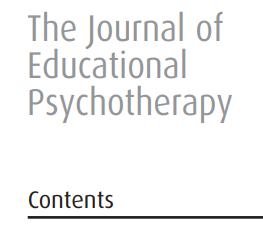The Caspari Journal of Educational Psychotherapy
Issue 27, 2021
This rich collection of papers offers various interconnecting threads of thought. A common and familiar theme is the influence of early infantile experiences on later interactions and functioning. Another strand concerns the transmission of culture and the challenge of considering contextual and cultural assumptions when reflecting on our own or others’ interactions.
Featured extract
Observation, Attention and Awareness: Emotional States and Bodily Clues
by Graham Music
In this paper I look at how the nature of observation has changed with our growing understanding of the role played by the observer. By giving attention to our own embodied reactivity, as well as our emotional states, we can gain strong clues about the situations we observe. I shall emphasise that the bodily countertransference responses of the observer can signify crucial information about the observed child. I do this in part by noting the experiences of oneself and one’s own body states when observing different kinds of situations, such as a neglectful as opposed to an overtly abusive one. I also look here at issues of cultural difference and prejudice as a way of challenging both the idea of the neutrality of the observer and the assumption of the observer’s privileged position epistemologically.
Featured extract
"See me so that I may understand you."
by Astrid Berg
This article is a transcript of a paper first presented at the 21st Congress of the International Association for Analytic Psychology held in Vienna in August 2019. … to start off with I want to refer to a recent production of a play written by the veteran South African actor and playwright, John Kani. Together with an equal icon in South African and British theatre, Sir Anthony Sher, he performed in the play ‘Kunene and the King.’ Two old men, one a white actor, the other a black carer, describing the landscapes of two very different, lived South Africas. One theme that was central to the play was the recognition, the ‘seeing’ of the other… It is this ‘seeing’ of the other that I will use as the theme – from a developmental point of view, and also from the societal collective as it plays itself out in the South African context.
Featured extract
Caspari and Progressive Education - The Froebel Connection
by Ron Best
In this essay I have not set out to argue a case or to ‘prove’ anything; rather, I have tried to explore something of the background and context of Irene Caspari’s work, building on Lynsey Daniels’s biographical paper by following up a particular ‘lead’ (the Froebel connection) to see what light it might shed on her thought and practice. I am aware that I have written a good deal more about Froebel than about Caspari, and more about education in general than about EPT. That is intentional. What is distinctive about educational psychotherapy is that it is educational: it has at its heart the blocks to a child's learning, most frequently and specifically, problems with reading. To know something more about the educational tradition informing Caspari’s work seemed a worthy goal.

